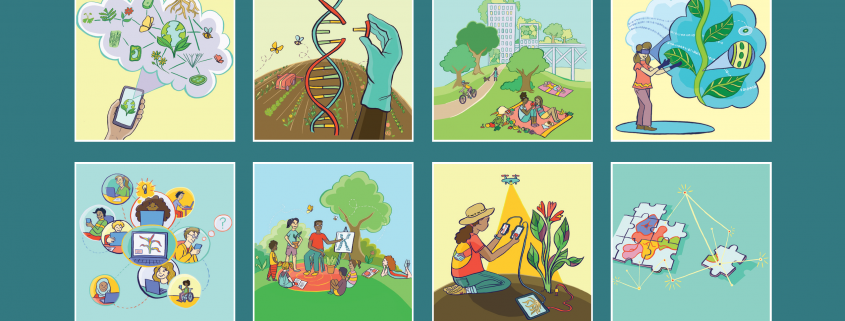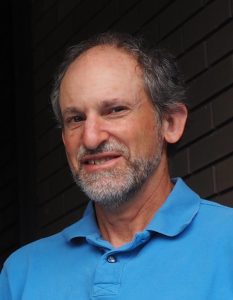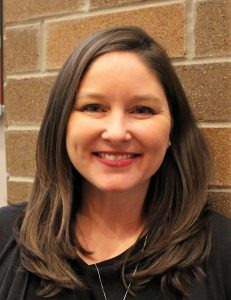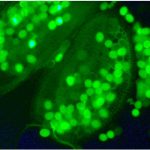Plant Science Decadal Vision Webinar with David Stern and Samantha Miller

Recorded Wednesday, June 17,
‘Virtual‘ Lunch~N~Learn Seminar via Webinar
PLANT SCIENCE DECADAL VISION, 2020-2030
Reimagining the Potential of Plants for a Healthy and Sustainable Future
The Decadal Vision for Plant Science will be the subject of a National Coalition for Food and Agricultural Research (NCFAR) ‘virtual’ Lunch~N~Learn webinar on Wednesday, June 17 at 12:30 Eastern. The presenters are Dr. David Stern, President of the Boyce Thompson Institute, and Dr. Samantha Shoaf Miller, Agronomy Information Specialist at Beck’s Seeds.
“This presentation provides an excellent example of the value of federally funded food and agricultural research, extension, and education in producing the scientific outcomes and outreach needed to meet 21st century challenges and opportunities,” says Andy LaVigne, President of NCFAR.
Highlights: Plants, and the biological systems around them, are key to the future health of the planet and its inhabitants. The Plant Science Decadal Vision 2020–2030 describes a holistic vision for the next decade of plant science that blends recommendations for research, people, and technology. Four broad goals for plant science research have the potential for significant societal impact, with advances in any one area stimulating progress in another. The goals are bold and aspirational and are intended to challenge and guide our community well beyond the ten-year time frame of this Decadal Vision. Along this exciting path lie numerous near-term discoveries and impacts that promise to deepen our understanding of plants and their environments, advance agricultural sustainability, and develop entirely new uses of plant systems to promote nutrition, health, and well-being. All the goals require improved transdisciplinary collaboration and increased participation in convergence research and thus are linked to the people and technology goals of our vision. Our recommendations therefore promote cultural changes that support the diversification and well-being of plant scientists and encourage community engagement. One mechanism to stimulate cultural change is the infusion of plant awareness across society, which is urgently needed in the era of climate change. Plant awareness efforts will play into people’s natural curiosity about and desire to prepare for the future, leading them to seek fuller information about food, health, climate, and ecological systems and, in some cases, to join the scientific community.
David Stern, Ph.D., is President and CEO of the Boyce Thompson Institute and an Adjunct Professor of Plant Biology at Cornell University. He is a plant biologist who has contributed to our understanding of the evolution of plant cells and the molecular signaling inside of them. In his current research, Stern studies how plants absorb carbon dioxide and incorporate it into the sugars used for growth, in a process called photosynthesis. His laboratory has used this knowledge to manipulate the enzyme Rubisco, which utilizes atmospheric CO2, to improve the growth and resilience of maize plants. They employ a range of techniques including bioinformatics, genetics, plant transformation, and biochemistry. David graduated from the University of California, Berkeley, with a degree in molecular biology, and received Master’s and Doctoral degrees from Cambridge University and Stanford University in 1982 and 1986, respectively. He joined BTI in 1989 and in 2001 became the Vice President for Research. In 2004 he assumed the position of President. He is a Fellow of the American Association for the Advancement of Science and the American Society of Plant Biologists, and a former Guggenheim Fellow and NSF National Young Investigator.
Samantha Shoaf Miller, Ph.D., is Agronomy Information Specialist at Beck’s Hybrids, the largest family-owned seed company in the US. Her role is focused on bridging the space between the technical agronomy team and the marketing department. She went to the University of Florida, where she became enamored of the science of food production and the power of stable food supplies to improve social justice and peacebuilding initiatives, and earned a Ph.D. in Agronomy at Purdue University. She was selected to serve as a AAAS Science and Technology Policy Fellow representing ASA-CSSA-SSSA. As a Fellow, Samantha worked on the Ag portfolio in the office of Senator John Thune of South Dakota.
The National Coalition for Food and Agricultural Research (NCFAR) is a nonprofit, nonpartisan, consensus-based, and customer-led coalition that brings food, agriculture, nutrition, conservation, and natural resource stakeholders together with the food and agriculture research and Extension community, serving as a forum and a unified voice in support of sustaining and increasing public investment at the national level in food and agricultural research, Extension, and education. NCFAR’s Hill Seminar Series, now in its sixteenth year, regularly presents leading-edge researchers working to provide answers to pressing issues confronting the public and Congress. The Hill Seminar Series helps demonstrate the value of public investment in food and agricultural research—investment that returns 45 percent per year on average, and $20 in economic benefit from every $1 investment in food and ag research.
Go to http://www.ncfar.org/Hill_Seminar_Series.asp for more information about the seminar series and past topics. Interviews with NCFAR President Andy LaVigne, President & CEO of the American Seed Trade Association, are available by request. For additional information, go to www.ncfar.org; or contact Tom Van Arsdall, Executive Director, at [email protected] or (703) 509-4746.






